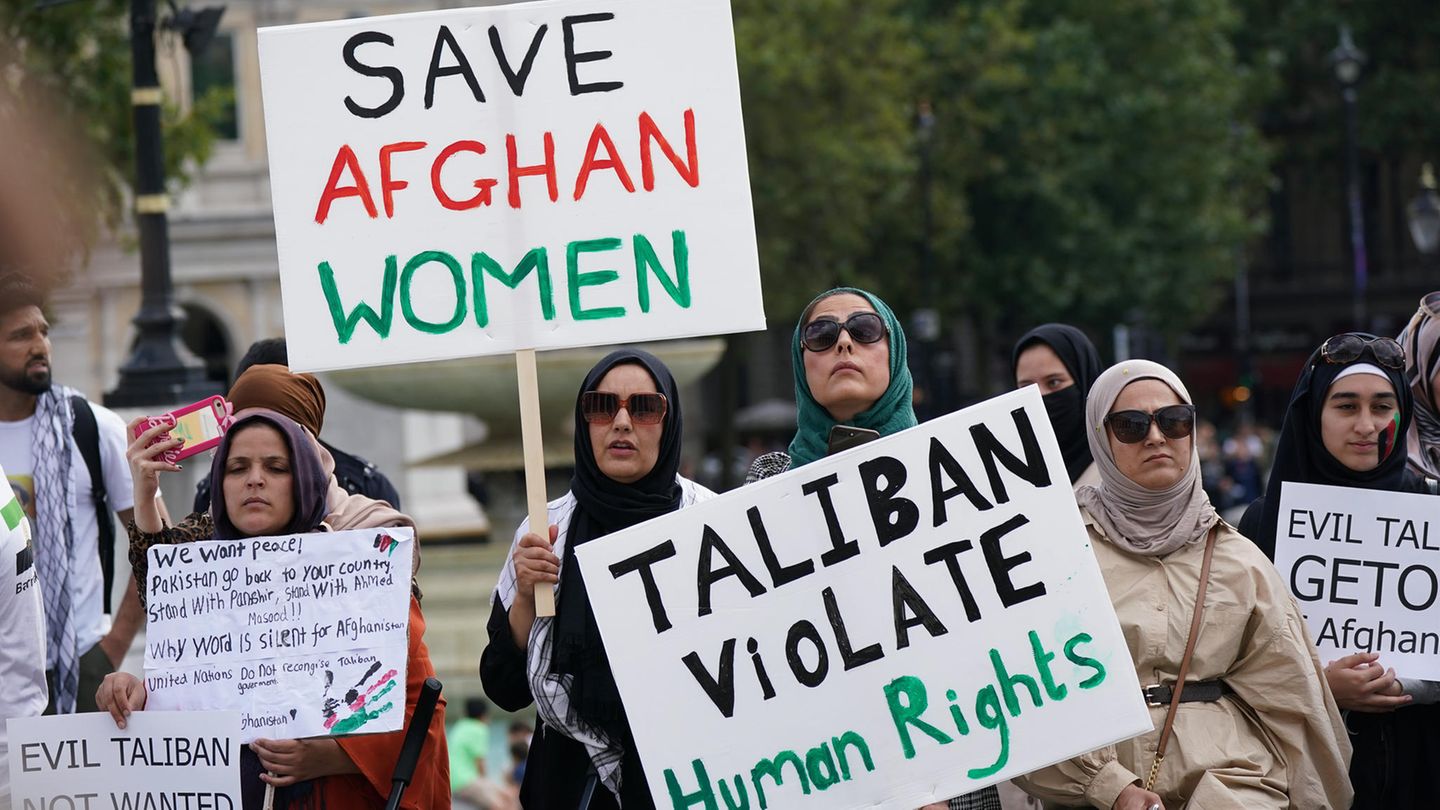“We don’t want people to panic,” says the head of the Taliban’s regional police. In interviews with Western media, the new rulers in Afghanistan admit they are peace-loving – and promise different times than in the 1990s. But how serious do you mean it?
Only recently, the Taliban converted the Ministry of Women into an office of the regional police. A sign above the main entrance now identifies the building as the “Ministry of Prayer and Orientation and the Promotion of Virtue and the Prevention of Vice”. Those who are old enough will remember the rule of the terrorist group in the 1990s with horror.
The police officers of the time served as brutal executors of the extreme interpretation of Islam. Men were whipped to pray in mosques, the length of the beard was prescribed exactly. Radios and television were taboo, and women who worked, left the house without a male companion or showed their faces in public were arrested. And today?
Persuade – but how?
If the words of Mawlawi Mohammad Shebani, who was recently appointed head of the Provincial Office for “Promoting Virtue and Preventing Vice”, are to be believed, better times are now ahead for the Afghan people. According to the, people will in future be persuaded to adhere to the new regulations instead of using force immediately. However, the new rulers do not want to completely refrain from doing this. Anyone who defies the Taliban’s rules is considered a criminal – and there is a special plan for dealing with them.
Enlightenment and pressure are intended to induce resistance members to adhere to the rules. Shebani did not explain to the Guardian what this looks like. If people still do not obey the rules, violence could be a solution, according to the official guidelines. “If people are still unruly afterwards (with their abusive behavior) and cause problems with it, we can stop them with our hands.” What exactly this means remains unclear – but leaves room for speculation.
Control especially in the cities
The new set of rules stipulates that women should only be in public when accompanied by men. For men, the beard length is again prescribed. That begs the question of what has changed since the 1990s. “The difference is that we didn’t have a particular book of principles. There was only the mujahideen with no written code,” said Shebani, referring to the past rule.
How the new cabinet for vices and virtues operates exactly is unclear. When the Afghan rulers published a list of new cabinet appointments in English at the beginning of September, the translation of the Ministry of Virtue was missing, reports the Guardian.
As Shebani told the newspaper, there are five main checkpoints in Afghanistan where officials from the Ministry are stationed. They are supposed to monitor the population and ensure that the Taliban’s guidelines are followed. A campaign should convince people of the social rules. First of all, one wants to “inform about the principles”. The regional police will concentrate primarily on urban areas where the Taliban have only recently started to rule. In rural areas, people have already learned the principles.
“Some people think we are extremist”
However, Shebani ruled out the dreaded control patrols, as in the 1990s. “We want to emphasize that we are not going to go into people’s homes or places where they meet, and we will not use violence.” Ministry members are forbidden to do this anyway – even if it is clear that the rules will be broken.
Instead, the residents should be exhorted to be clean and charitable. In addition, the guidelines call for respect for women’s rights. Forced marriages are therefore also prohibited, at the same time there is the possibility of getting divorced.
“Some people think we are extremist, but we are not like that. Islam is a religion of moderation, not too much and not too little, everything is right,” Shebani told the Guardian. It is clear to him, however, that the Taliban do not give a good image in the media. Instead, he appeals, they should spread reality. However, this reality also includes the violent suppression of protests and demonstrations. These have also recently been banned. On Wednesday women demonstrated at rallies in Kabul. Several journalists were arrested and ill-treated.
Those: “Guardian”
David William is a talented author who has made a name for himself in the world of writing. He is a professional author who writes on a wide range of topics, from general interest to opinion news. David is currently working as a writer at 24 hours worlds where he brings his unique perspective and in-depth research to his articles, making them both informative and engaging.




